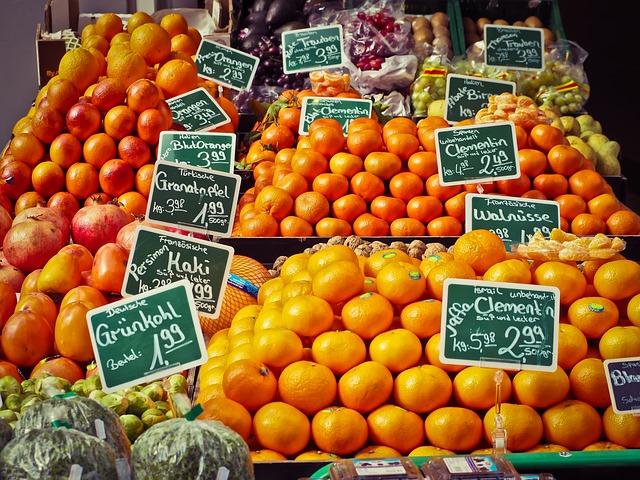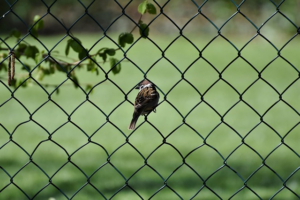Green Thumb: Eco-Friendly Yard Care for Sustainable Homeowner Landscapes
Homeowners are embracing yard waste removal and recycling as a sustainable practice to mitigate environmental impact and promote ecological balance. This approach not only reduces the volume of waste sent to landfills but also diminishes methane…….

Homeowners are embracing yard waste removal and recycling as a sustainable practice to mitigate environmental impact and promote ecological balance. This approach not only reduces the volume of waste sent to landfills but also diminishes methane emissions, a significant greenhouse gas. By composting organic matter like grass clippings and leaves, homeowners enrich their soil with essential nutrients, cut down on synthetic fertilizer use, and foster a healthier landscape. Mulching helps maintain soil health and moisture retention. Proper chipping or shredding of larger yard debris transforms it into mulch or compost, which in turn supports biological decomposition, providing valuable soil amendments. These practices align with broader environmental objectives by contributing to cleaner air, healthier soils, and water conservation, while also setting a precedent for responsible environmental stewardship within communities. Yard waste removal and recycling thus become integral to sustainable horticulture, offering a dual benefit of reducing waste and improving soil quality, which is vital for plant growth and biodiversity support. Homeowners can further enhance their efforts by utilizing local yard waste collection programs designed to divert organic matter from landfills and produce high-quality compost. Through these sustainable practices, homeowners contribute positively to environmental sustainability and the fight against climate change.
Homeowners looking to cultivate green spaces without harming the environment can explore eco-friendly yard care practices. This article delves into sustainable approaches, highlighting how embracing such methods not only benefits the ecosystem but also enhances your property’s beauty. We’ll cover the latest in Yard Waste Removal and Recycling, offering practical solutions that transform organic matter into valuable compost for soil health enhancement. Join us as we navigate the path to a greener, more sustainable landscape.
- Embracing Sustainability: Eco-Friendly Yard Care Practices for Homeowners
- Efficient Yard Waste Removal and Recycling Strategies
- Composting Organic Materials: A Homeowner's Guide to Soil Health Enhancement
Embracing Sustainability: Eco-Friendly Yard Care Practices for Homeowners

Homeowners increasingly recognize the importance of incorporating sustainable practices into yard care to preserve the environment and promote ecological balance. One significant aspect of eco-friendly yard maintenance is the proper handling of yard waste, which traditionally has contributed to landfill volumes. By engaging in yard waste removal and recycling, homeowners can significantly reduce their environmental footprint. Composting organic matter like grass clippings and leaves not only returns valuable nutrients to the soil but also decreases the need for chemical fertilizers. Additionally, utilizing mulch helps in conserving moisture and improving soil structure, further supporting sustainable yard care practices. Chipping or shredding larger branches and wood debris can provide material for mulch or even create heat-generating piles for biological decomposition, which can then be used as compost. Implementing these measures not only contributes to a healthier landscape but also supports broader environmental goals, making yard waste removal and recycling a cornerstone of sustainable horticulture. Homeowners who adopt these practices will find they contribute to cleaner air, soil enrichment, and water conservation, while also setting a positive example for their community in the realm of environmental stewardship.
Efficient Yard Waste Removal and Recycling Strategies

Homeowners committed to eco-friendly practices can significantly impact the environment by adopting efficient yard waste removal and recycling strategies. Traditional yard waste disposal methods often involve landfill burial, which not only takes up valuable space but also contributes to methane emissions. In contrast, composting and mulching are sustainable alternatives that return nutrients to the soil and reduce the need for chemical fertilizers. By creating a compost pile or using a chipper/shredder to transform yard waste into mulch, homeowners can reuse organic matter to enrich their gardens, thus promoting soil health and reducing waste. Additionally, many communities offer yard waste collection programs that divert these materials away from landfills and towards facilities where they are converted into compost. These programs not only support local ecosystems but also provide residents with high-quality compost for gardening. Homeowners should research their local options and take advantage of these services to ensure that their yard maintenance contributes positively to environmental sustainability.
Another aspect of eco-friendly yard care is the proper handling of yard waste during the fall season, particularly when dealing with leaves and grass clippings. Instead of sending these materials to a landfill, homeowners can employ strategies such as leaf shredding or creating a dedicated compost pile for these organic materials. Not only do these methods reduce the volume of waste, but they also create valuable soil amendments that can be used throughout the year. Further, by maintaining an active compost system, homeowners contribute to carbon sequestration, as the decomposition process in a compost pile effectively captures and stores carbon dioxide from the atmosphere. Implementing these yard waste removal and recycling strategies is not only beneficial for the environment but also fosters a sustainable community ethos, encouraging neighbors to adopt similar practices.
Composting Organic Materials: A Homeowner's Guide to Soil Health Enhancement

Homeowners looking to enhance their soil health sustainably can begin by composting organic yard waste. This process transforms kitchen scraps and garden trimmings into nutrient-rich humus, which enriches the soil and supports plant growth. By engaging in composting, homeowners reduce the volume of waste sent to landfills and minimize methane emissions, a potent greenhouse gas. Composting organic materials not only contributes to environmental health but also promotes biodiversity by providing habitats for beneficial microorganisms and insects.
To initiate composting, select a suitable location in your yard that is conveniently accessible yet out of the way. Start a compost pile or bin with a balanced mix of green (nitrogen-rich) and brown (carbon-rich) materials. Green materials include kitchen scraps like fruit and vegetable peels, coffee grounds, and grass clippings, while brown materials consist of dried leaves, straw, and shredded paper. Regularly turning the compost pile or mixing the contents of a bin helps aerate the material, which is crucial for optimal decomposition. Yard waste removal and recycling services can also assist in maintaining an effective composting system by periodically taking away excess material or providing additional resources. Through this eco-conscious approach to yard care, homeowners can significantly improve their soil’s fertility and contribute to a healthier planet.
Homeowners looking to cultivate green spaces without compromising environmental health now have a comprehensive set of practices at their disposal. Embracing sustainability through eco-friendly yard care is not just beneficial for the planet but also enhances soil health and promotes biodiversity. By implementing efficient yard waste removal and recycling strategies, along with composting organic materials as outlined in our guide, you can significantly contribute to a healthier ecosystem. Adopting these eco-conscious approaches not only streamlines the maintenance of your yard but also aligns with the broader environmental objectives of reducing waste and conserving natural resources. Making the transition to sustainable yard care is a tangible step towards a greener future for our communities and the earth.







